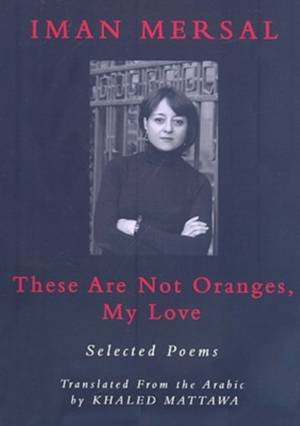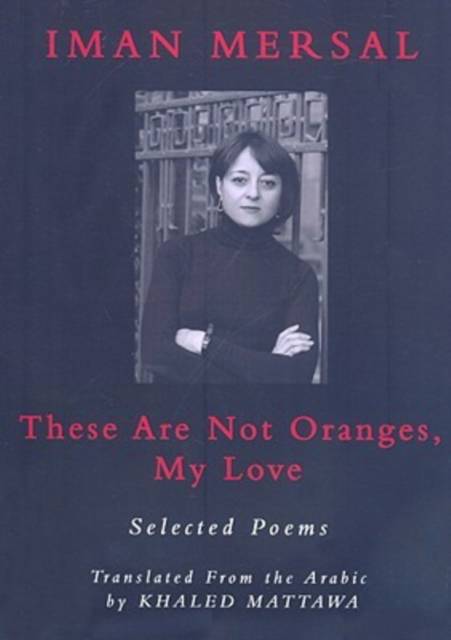
- Retrait gratuit dans votre magasin Club
- 7.000.000 titres dans notre catalogue
- Payer en toute sécurité
- Toujours un magasin près de chez vous
- Retrait gratuit dans votre magasin Club
- 7.000.0000 titres dans notre catalogue
- Payer en toute sécurité
- Toujours un magasin près de chez vous
Description
Iman Mersal's singing of the dark shimmers; her charting of the cold warms at least this heart. She shows us how love exists against itself, how the human heart is often in conflict with its own nature, and how this imperfect state survives its own imperfections and rises to something resembling joy. Khaled Mattawa's translation should not only be commended on its fidelity, but its exceptional talent and sensitivity. He has once more confirmed himself to be one of the best translators of Arabic verse working today.--Hisham Matar
A wonderfully odd and vivid mix of humor and pain, Mersal's work captures the contemporary complexities of an individual at a crucial point of cultural confluence, but also the timeless complexity of the poet trying to fit the world into words. Mattawa's translations bring all of this alive in an English so quick and natural that you forget that you're reading a translation. All in all, it's a real gift to contemporary poetry.--Cole Swensen
In reading These Are Not Oranges, My Love, one encounters a rare sensibility, formed in a remote village near the sleeping snake of the Nile, on the streets of Cairo, and later in the snows of Alberta. Here is a poetry for the twenty-first century: a manual of survival, dispatches from The City of the Dead and The Department of Antiquities, reports from the front of body, dislocation and selfhood. Her disclosures are intimate, her proclamations surprising and there is nothing predictable about how she sees the world. However, it is in the vibrancy of her language that she signals the presence of a new and important poet among us. Khaled Mattawa has my gratitude for bringing her work across the bridge from Arabic to English.--Carolyn Forché
"My ignorance assumed, under no circumstances that I know of would Iman Mersal veil her face. But I know the beauty of her poetry is often in shadow, often almost hidden from the reader, suddenly revealed in bright Egyptian sunlight that hurts the eye and challenges the mind. Her publisher and English translation editor, we had one little quarrel. She thought the photograph she gave me on request was a little too true for the book - she wanted her face not to be seen so clearly. And so with alluring reluctance, her art connects the modern and traditional, sadly murderous Arabic worlds, the proud and shameful, past and present, her personal joy and suffering. It is a reluctance for which only a master could find the language." (Stanley Moss)
Spécifications
Parties prenantes
- Auteur(s) :
- Editeur:
Contenu
- Nombre de pages :
- 90
- Langue:
- Anglais
Caractéristiques
- EAN:
- 9781931357548
- Date de parution :
- 01-11-08
- Format:
- Livre broché
- Format numérique:
- Trade paperback (VS)
- Dimensions :
- 163 mm x 221 mm
- Poids :
- 204 g

Les avis
Nous publions uniquement les avis qui respectent les conditions requises. Consultez nos conditions pour les avis.






